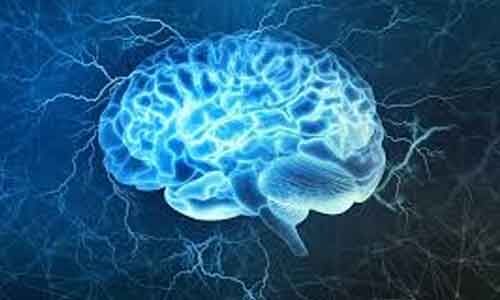- Home
- Medical news & Guidelines
- Anesthesiology
- Cardiology and CTVS
- Critical Care
- Dentistry
- Dermatology
- Diabetes and Endocrinology
- ENT
- Gastroenterology
- Medicine
- Nephrology
- Neurology
- Obstretics-Gynaecology
- Oncology
- Ophthalmology
- Orthopaedics
- Pediatrics-Neonatology
- Psychiatry
- Pulmonology
- Radiology
- Surgery
- Urology
- Laboratory Medicine
- Diet
- Nursing
- Paramedical
- Physiotherapy
- Health news
- Fact Check
- Bone Health Fact Check
- Brain Health Fact Check
- Cancer Related Fact Check
- Child Care Fact Check
- Dental and oral health fact check
- Diabetes and metabolic health fact check
- Diet and Nutrition Fact Check
- Eye and ENT Care Fact Check
- Fitness fact check
- Gut health fact check
- Heart health fact check
- Kidney health fact check
- Medical education fact check
- Men's health fact check
- Respiratory fact check
- Skin and hair care fact check
- Vaccine and Immunization fact check
- Women's health fact check
- AYUSH
- State News
- Andaman and Nicobar Islands
- Andhra Pradesh
- Arunachal Pradesh
- Assam
- Bihar
- Chandigarh
- Chattisgarh
- Dadra and Nagar Haveli
- Daman and Diu
- Delhi
- Goa
- Gujarat
- Haryana
- Himachal Pradesh
- Jammu & Kashmir
- Jharkhand
- Karnataka
- Kerala
- Ladakh
- Lakshadweep
- Madhya Pradesh
- Maharashtra
- Manipur
- Meghalaya
- Mizoram
- Nagaland
- Odisha
- Puducherry
- Punjab
- Rajasthan
- Sikkim
- Tamil Nadu
- Telangana
- Tripura
- Uttar Pradesh
- Uttrakhand
- West Bengal
- Medical Education
- Industry
Nutritional supplementation improves cognitive function in malnourished children: BMJ

Researchers have recently reported that supplementary feeding for 23 weeks can improve executive function, brain health, and nutritional status in vulnerable young children living in low income countries.
Under nutrition in the early years of life is thought to cause permanent damage to cognitive function that is not reversed by later nutritional supplementation. An increasing body of pre-clinical research has suggested that traditional supplementary foods for young children might lack key food constituents that could support regenerative changes in the brain.
Susan B Roberts from Tufts University, Boston, along with associates have carried out the study in West Africa and published their findings in the British Medical Journal.
The main goal of the study was to assess the effects of food supplementation on improving working memory and additional measures including cerebral blood flow in children at risk of under nutrition.
The study design was a randomized controlled trial in 10 villages in Guinea-Bissau of West Africa with 1059 children aged 15 months to 7 years as participants ;children younger than 4 were the primary population. The children were provided with Supervised isocaloric servings (≈1300 kJ, five mornings each week, 23 weeks) of a new food supplement (NEWSUP, high in plant polyphenols and omega 3 fatty acids, within a wide variety and high fortification of micronutrients, and a high protein content), or a fortified blended food (FBF) used in nutrition programs, or a control meal (traditional rice breakfast).
The primary outcome that was measured was working memory. Additional outcomes were hemoglobin concentration, growth, body composition, and index of cerebral blood flow (CBFi). In addition to an intention-to-treat analysis, a predefined per protocol analysis was conducted in children who consumed at least 75% of the supplement (820/925, 89%).
The key findings were-
Ø Among children younger than 4, randomization to NEWSUP increased working memory compared with the control meal (rate ratio 1.20, 95% confidence interval 1.02 to 1.41, P=0.03), with a larger effect in the per protocol population (1.25, 1.06 to 1.47, P=0.009)
Ø NEWSUP also increased hemoglobin concentration among children with anemia compared with the control meal, decreased body mass index z score gain (−0.23, −0.43 to −0.02, P=0.03), and increased lean tissue accretion (2.98 cm2, 0.04 to 5.92, P=0.046) with less fat (−5.82 cm2, −11.28 to −0.36, P=0.04) compared with FBF.
Ø Additionally, NEWSUP increased CBFi compared with the control meal and FBF in both age groups combined.
Ø Among children aged 4 and older, NEWSUP had no significant effect on working memory or anemia, but increased lean tissue compared with FBF.
Researchers concluded that childhood under-nutrition is associated with long term impairment in cognition. Maximum beneficial effects were seen in children up to 4 years old with the new food supplement. Further research is needed to optimize the supplement composition and examine cognition more extensively for NEWSUP and traditional supplementary foods, the authors said.
Primary source: British Medical Journal
Dr Satabdi Saha (BDS, MDS) is a practicing pediatric dentist with a keen interest in new medical researches and updates. She has completed her BDS from North Bengal Dental College ,Darjeeling. Then she went on to secure an ALL INDIA NEET PG rank and completed her MDS from the first dental college in the country – Dr R. Ahmed Dental College and Hospital. She is currently attached to The Marwari Relief Society Hospital as a consultant along with private practice of 2 years. She has published scientific papers in national and international journals. Her strong passion of sharing knowledge with the medical fraternity has motivated her to be a part of Medical Dialogues.
Dr Kamal Kant Kohli-MBBS, DTCD- a chest specialist with more than 30 years of practice and a flair for writing clinical articles, Dr Kamal Kant Kohli joined Medical Dialogues as a Chief Editor of Medical News. Besides writing articles, as an editor, he proofreads and verifies all the medical content published on Medical Dialogues including those coming from journals, studies,medical conferences,guidelines etc. Email: drkohli@medicaldialogues.in. Contact no. 011-43720751


